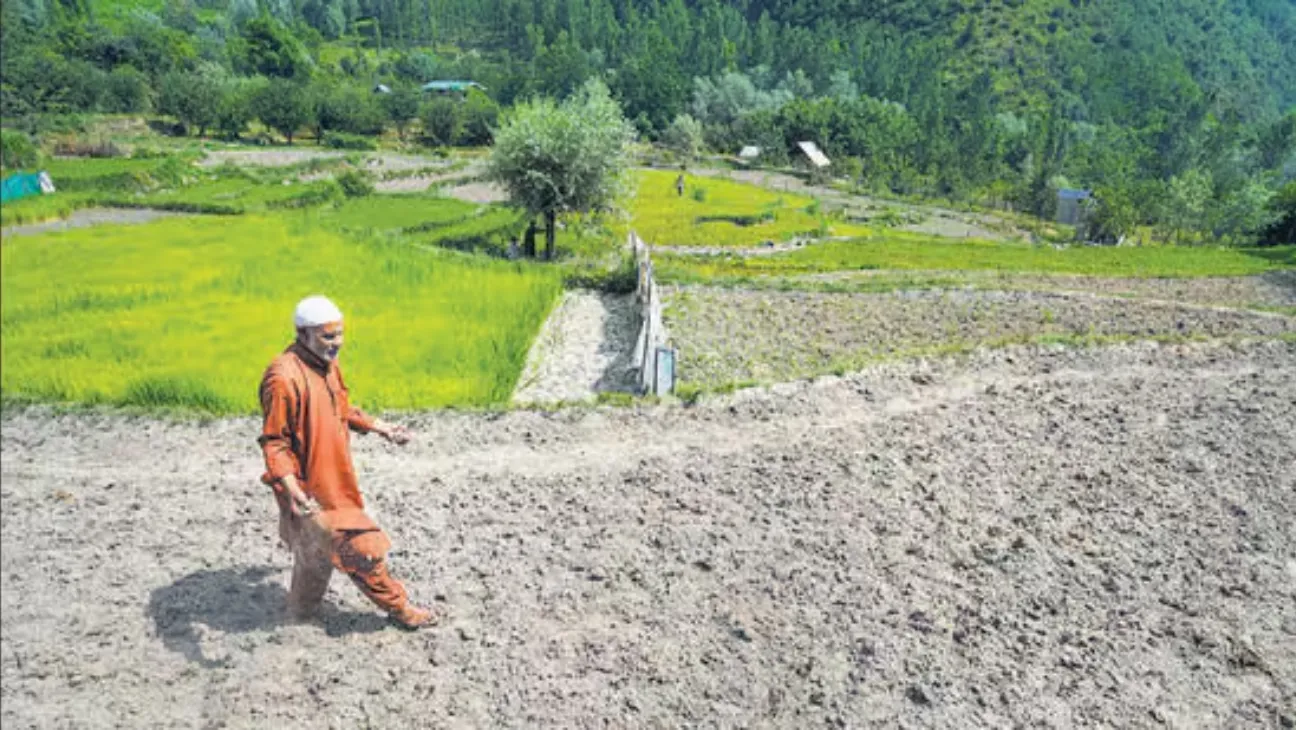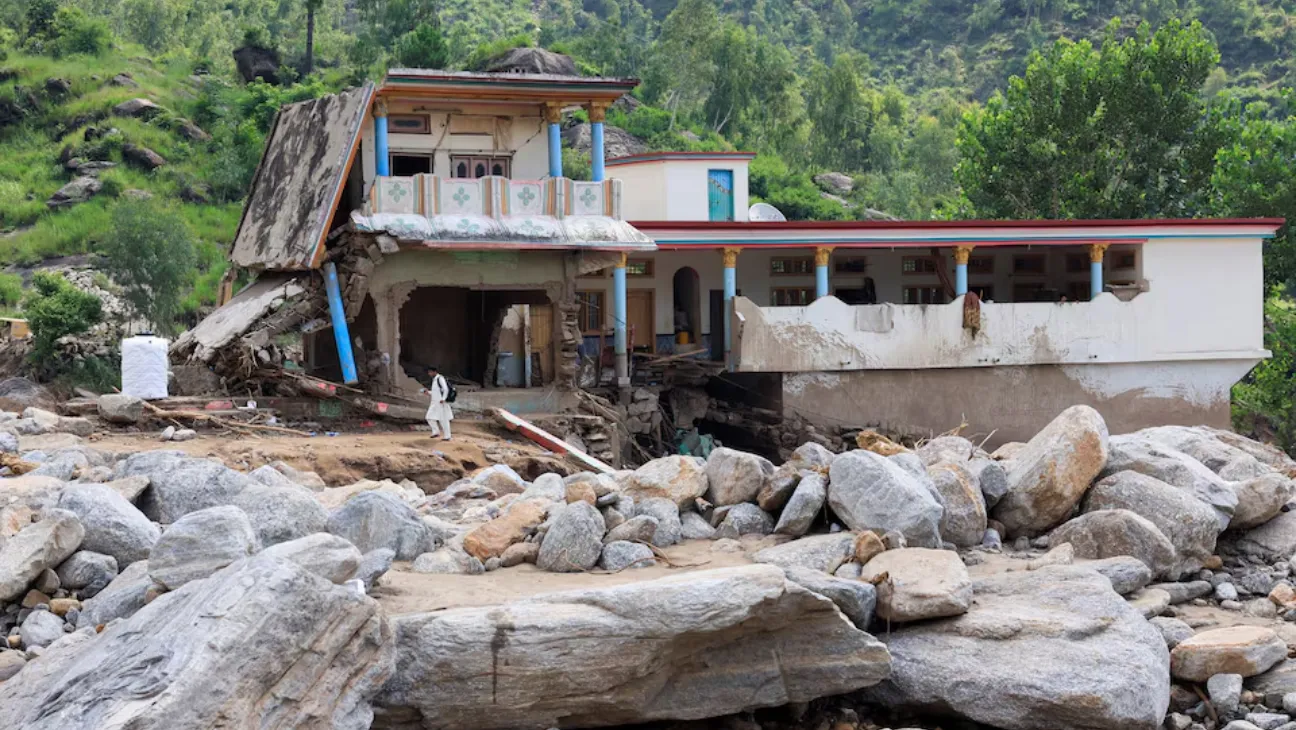When water flooded through a canal last spring, Riyaz Ahmed Bhatt’s mustard crop in Baramulla vanished under the surge. The following summer brought a dry spell that baked his land and wilted the next crop—Shalimar rice.
Now, standing on his eight-acre farm in Sangri Top Watlab, Bhatt watches the same canal, nearly dry. The flow that once nourished his fields has thinned to a trickle.
He’s planted rice again, but without water, he’s not sure why.
Climate and Politics Collide
Kashmir’s weather has turned more extreme, with hotter summers and shrinking snowfall. Experts tie it to climate change, but farmers like Bhatt see deeper issues.
The recent suspension of the 1960 Indus Waters Treaty by India has stirred new conversations in the valley. After a deadly attack in Pahalgam on April 22, the Indian government pulled out of the agreement, which had allocated around 80% of the Indus basin’s water to Pakistan.
Many locals see it as an overdue move.
“Pakistan’s farmers have always got more water from our rivers,” said Sajid Mir, a part-time farmer from a nearby village. “Our own people didn’t even have drinking water last year.”
Generations of Concern
The treaty split six rivers between the two countries. Pakistan took the western rivers—Indus, Jhelum, Chenab. India held on to the eastern ones—Ravi, Beas, Sutlej. That’s how the water deal played out.
Kashmir’s water problems didn’t happen overnight. Less snow, erratic rain, and more people have all played a part.
In Srinagar’s Residency Road, hotelier Farooq Dar remembered how his late father tried to raise alarm decades ago. “In the 90s, he wrote to the state government about the unfair water distribution. No one listened.”
Today, his family’s business is still feeling the effects.
Uneven Benefits from Hydropower
Power cuts during scorching summer days are a source of constant frustration for people in Jammu and Kashmir. What makes it worse is knowing that their region is home to numerous hydropower projects that generate a surplus of electricity.
According to one official, a staggering 87% of the power generated there is sold off to other states, leaving a mere 13% for local use.
Former top bureaucrat Tanveer Hussain said the region has often been shortchanged. “We lost out on both water and power. The treaty didn’t serve our interests.”
Farming Under Stress
In Kashmir, farming isn’t just common—it’s a way of life for over 70% of the population. And much of it depends on the snow melting off the mountains.
But things are changing. Winters have become erratic. Snowfall is less consistent. Chillai Kalam, once the coldest and snowiest phase of winter, has lost its bite, said Mukhtar Ahmed from the local meteorological office.
Saffron farming has declined. Mustard and paddy fields are failing. In many villages, sprinkler systems installed over a decade ago are now idle.
Mir recalled how tankers had to bring drinking water to his community last winter. That had never happened before.
Voices of the Valley
Some believe the suspension of the treaty marks a turning point.
Jammu and Kashmir’s chief minister Omar Abdullah described the agreement as the “most unfair document” ever imposed on the region.
Others echo that sentiment.
“The Indus Waters Treaty is seen as an international issue, but its biggest impact has been on us,” said Ambreen Shaikh, a teacher in Srinagar. “It was unfair for us, and this wrong should now be corrected.”
Still, the fix isn’t immediate. Climate pressures aren’t waiting, and the glaciers are melting fast. Water, once predictable, now comes too early or not at all.
Farmers are adapting. Some are shifting to fruit orchards. Others wait for solutions that feel distant.
And for people like Bhatt, each season brings more uncertainty.









